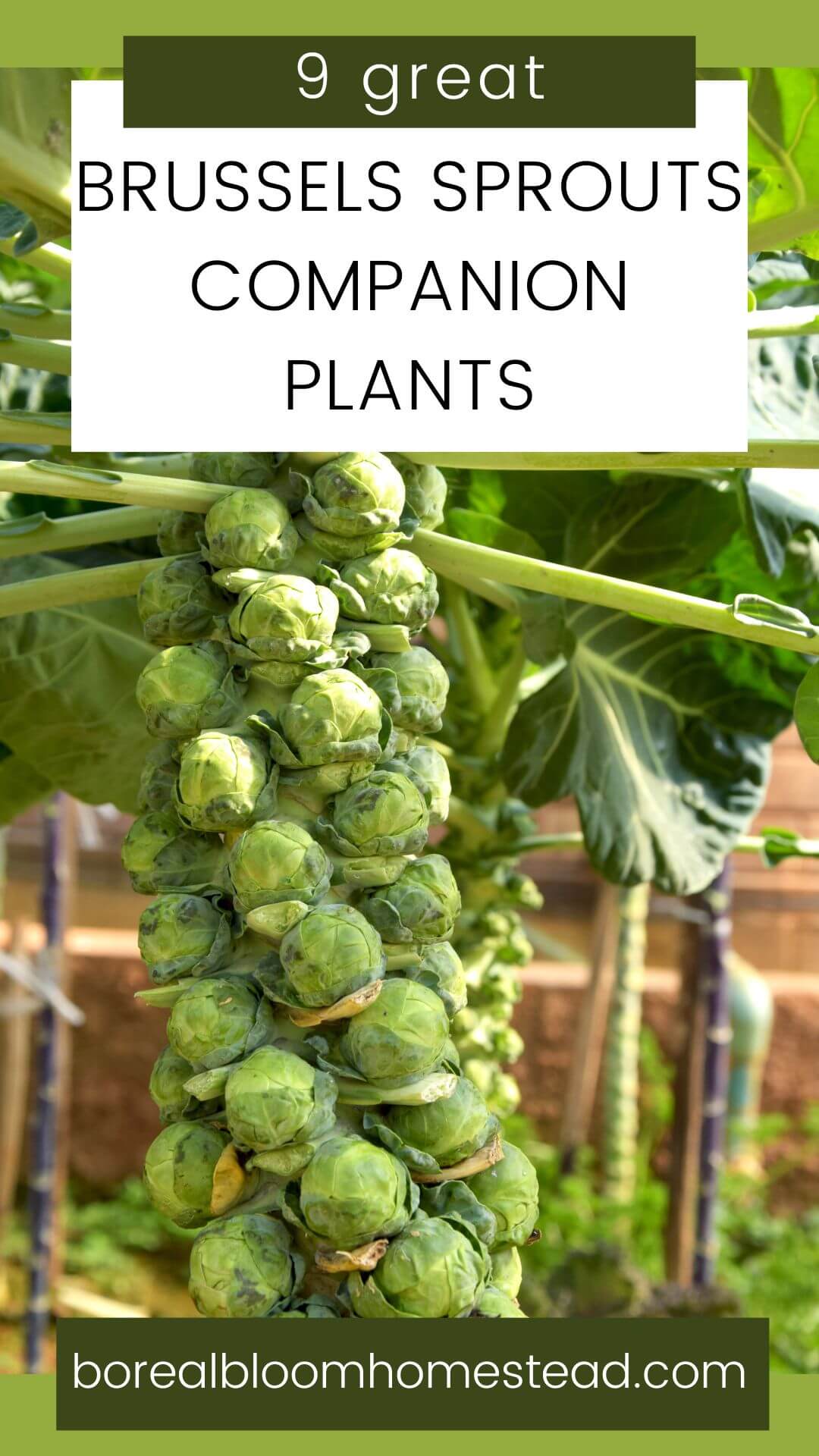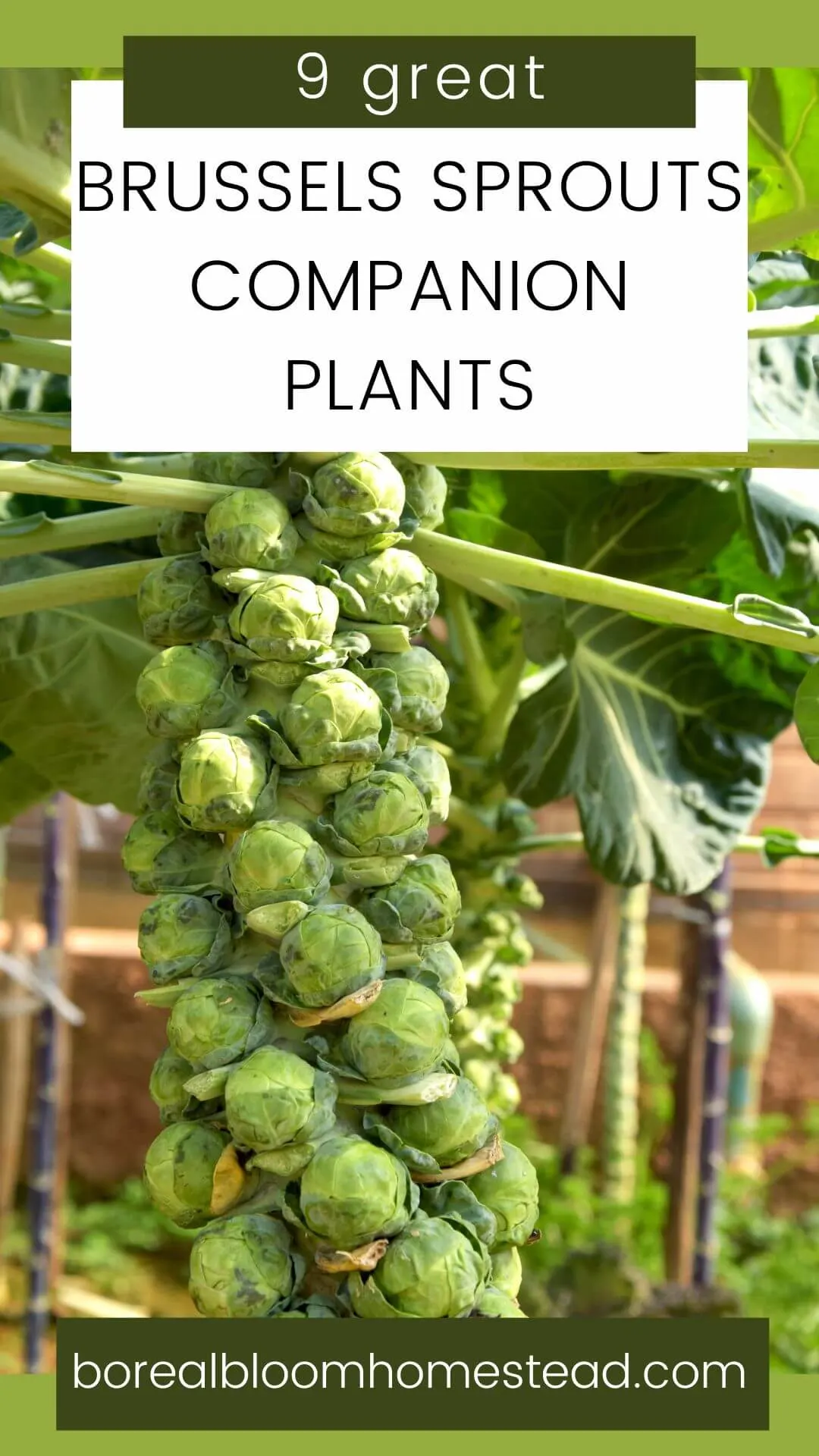The Ultimate Guide To Brussels Sprout Companions
The Ultimate Guide to Brussels Sprout Companions
Brussels sprouts are a delicious and nutritious winter vegetable that can be enjoyed in many different ways. But did you know that the plants you choose to grow near your Brussels sprouts can have a big impact on their health and yield?
Companion planting is the practice of planting certain plants together in order to benefit each other. By choosing the right companion plants, you can help to improve the growth, flavor, and pest resistance of your Brussels sprouts.
In this guide, we will discuss the best companion plants for Brussels sprouts, as well as some plants that you should avoid planting near them. We will also provide some tips on how to use companion planting to improve your Brussels sprout harvest.
Benefits of Companion Planting
There are many benefits to companion planting, including:
- Improved growth: Companion plants can help to improve the growth of your Brussels sprouts by providing them with nutrients, water, and shade.
- Increased yield: Companion plants can help to increase the yield of your Brussels sprouts by attracting pollinators and deterring pests.
- Better flavor: Companion plants can also help to improve the flavor of your Brussels sprouts by adding nutrients to the soil or by releasing aromatic compounds that enhance the flavor of the sprouts.
- Pest resistance: Companion plants can help to deter pests from attacking your Brussels sprouts. This is because many companion plants release chemicals that repel pests.
Best Companion Plants for Brussels Sprouts
Some of the best companion plants for Brussels sprouts include:
- Carrots: Carrots help to improve the flavor of Brussels sprouts and can also help to repel pests.
- Chamomile: Chamomile helps to improve the flavor of Brussels sprouts and can also help to deter pests.
- Dill: Dill attracts pollinators, which can help to increase the yield of your Brussels sprouts.
- Garlic: Garlic helps to repel pests and can also help to improve the flavor of Brussels sprouts.
- Marigolds: Marigolds help to repel pests and can also help to improve the flavor of Brussels sprouts.
- Onions: Onions help to repel pests and can also help to improve the flavor of Brussels sprouts.
- Peas: Peas help to improve the nitrogen content of the soil, which can benefit Brussels sprouts.
- Spinach: Spinach helps to improve the drainage of the soil, which can benefit Brussels sprouts.
Plants to Avoid Planting Near Brussels Sprouts
There are a few plants that you should avoid planting near Brussels sprouts, including:
- Cabbage: Cabbage is a member of the same family as Brussels sprouts, so planting them together can increase the risk of disease.
- Kale: Kale is a member of the same family as Brussels sprouts, so planting them together can increase the risk of disease.
- Lettuce: Lettuce can compete with Brussels sprouts for water and nutrients.
- Melons: Melons can attract pests that can also attack Brussels sprouts.
Tips for Using Companion Planting
When using companion planting, it is important to consider the needs of both the Brussels sprouts and the companion plants. For example, Brussels sprouts need full sun, so you will want to choose companion plants that also thrive in full sun.
It is also important to plant the companion plants at the same time as the Brussels sprouts. This will help to ensure that they have a chance to establish themselves before the Brussels sprouts start to grow.
Finally, you should water and fertilize both the Brussels sprouts and the companion plants evenly. This will help to ensure that both plants get the nutrients they need to thrive.
Conclusion
Companion planting is a great way to improve the growth, yield, and flavor of your Brussels sprouts. By choosing the right companion plants, you can help to deter pests, improve the soil quality, and enhance the flavor of your sprouts.
Brussels sprouts are a delicious and nutritious vegetable that can be grown in many different climates. But did you know that there are certain plants that can help Brussels sprouts grow better? These are called companion plants, and they can provide a number of benefits to Brussels sprouts, such as:
- Repelling pests and diseases
- Improving soil health
- Increasing pollination
- Enhancing flavor
If you're looking to grow the best Brussels sprouts possible, then it's important to choose the right companion plants. Here are a few of the best companion plants for Brussels sprouts:
- Alliums: Alliums, such as garlic, onions, and chives, help to repel pests and diseases.
- Carrots: Carrots help to improve soil health and can also help to deter pests.
- Herbs: Herbs, such as basil, rosemary, and mint, can help to improve the flavor of Brussels sprouts.
- Marigolds: Marigolds help to repel pests and diseases.
- Peas: Peas help to loosen the soil and can also help to improve nitrogen levels in the soil.
For more information about Brussels sprout companions, I recommend visiting the Garden Wiki. This website has a comprehensive list of companion plants for Brussels sprouts, as well as information about the benefits of companion planting.
FAQ of brussel sprout companions
Q: What are good companions for Brussels sprouts?
A: Brussels sprouts are a member of the cabbage family, so they do well planted near other brassicas, such as broccoli, cauliflower, and kale. They also enjoy the company of carrots, onions, and tomatoes.
- Alliums: Alliums, such as garlic, onions, and chives, help to repel pests that can damage Brussels sprouts, such as aphids, cabbage moths, and flea beetles.
- Beets: Beets help to improve the soil quality for Brussels sprouts, and they can also help to deter pests.
- Herbs: Herbs, such as basil, mint, and rosemary, can help to repel pests and attract beneficial insects.
- Marigolds: Marigolds help to deter pests and diseases, and they can also help to improve the soil quality.
- Nasturtiums: Nasturtiums help to deter pests and attract beneficial insects.
Q: What are the benefits of companion planting with Brussels sprouts?
A: Companion planting can help to improve the growth and health of Brussels sprouts in a number of ways. For example, companion plants can:
- Attract beneficial insects: Beneficial insects, such as ladybugs and parasitic wasps, help to control pests that can damage Brussels sprouts. Companion plants that attract beneficial insects include marigolds, nasturtiums, and chamomile.
- Repel pests: Companion plants can also help to repel pests that can damage Brussels sprouts. For example, alliums, such as garlic and onions, help to repel aphids, cabbage moths, and flea beetles.
- Improve soil quality: Companion plants can help to improve the soil quality for Brussels sprouts, which can lead to better growth and health. For example, beets help to add magnesium to the soil, and beans help to fix nitrogen in the soil.
- Provide shade: Tall companion plants, such as sunflowers and corn, can provide shade for Brussels sprouts, which can help to protect them from the hot sun.
Q: What are some good companion plants to avoid planting with Brussels sprouts?
A: There are a few companion plants that you should avoid planting with Brussels sprouts. These include:
- Tomatoes: Tomatoes and Brussels sprouts are both heavy feeders, so planting them together can lead to competition for nutrients.
- Peppers: Peppers and Brussels sprouts are both susceptible to the same pests and diseases, so planting them together can increase the risk of infection.
- Cucumbers: Cucumbers and Brussels sprouts can attract the same pests, such as aphids and cucumber beetles.
Q: How far apart should Brussels sprouts be planted from their companion plants?
A: The distance between Brussels sprouts and their companion plants will vary depending on the size of the plants. However, a good rule of thumb is to plant Brussels sprouts at least 12 inches apart, and their companion plants at least 6 inches apart.
Q: When should I plant companion plants with Brussels sprouts?
A: You can plant companion plants with Brussels sprouts at the same time, or you can plant them a few weeks later. If you plant them a few weeks later, make sure that the companion plants have enough time to establish themselves before the Brussels sprouts start to grow.
Image of brussel sprout companions
- Alliums: These plants help to repel pests that can damage brussel sprouts, such as cabbage moths and aphids. Some examples of alliums that are good companion plants for brussel sprouts include onions, garlic, and chives.

- Beets: Beets help to improve the soil quality for brussel sprouts, making it more nutrient-rich and drainage. They also help to suppress weeds.

- Herbs: Herbs, such as mint, rosemary, and thyme, can help to deter pests and attract beneficial insects to the brussel sprout patch.

- Marigolds: Marigolds are known for their insect-repelling properties, and they can help to keep pests away from brussel sprouts. They also help to improve the soil quality.

- Nasturtiums: Nasturtiums are another good insect-repelling plant that can be planted near brussel sprouts. They also help to improve the soil quality and attract beneficial insects.

Post a Comment for "The Ultimate Guide To Brussels Sprout Companions"